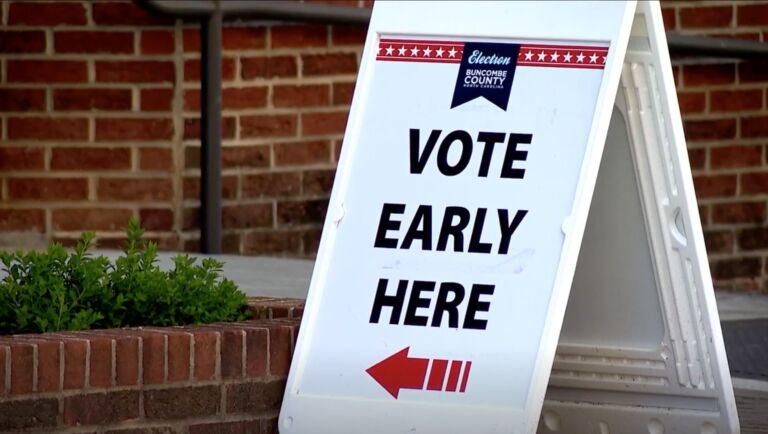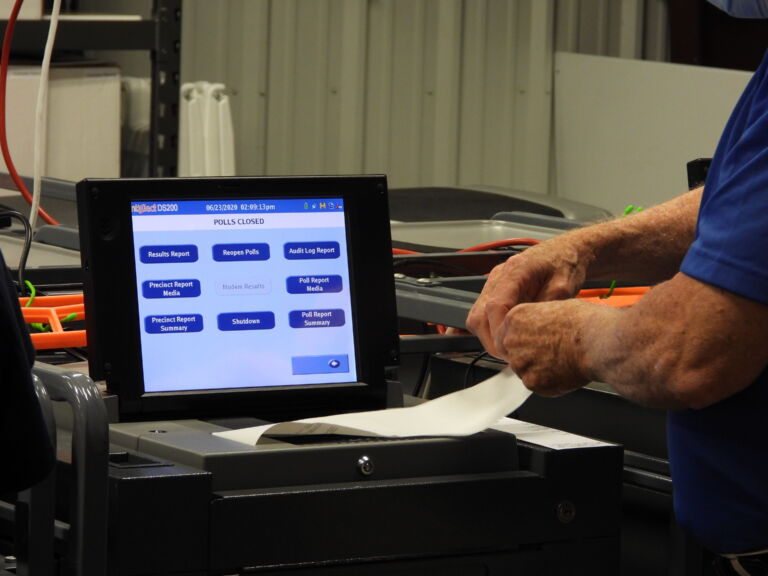An election security bill that is a hybrid of old and new proposals is advancing in the General Assembly.
H259, the Election Integrity Act, is set for a vote in the North Carolina House on October 20 (although votes on the bill have been put off twice previously). It is sponsored by representatives Keith Kidwell (R – Beaufort, Craven), Kyle Hall (R – Rockingham, Stokes, Surry), Jeffry McNeely (R – Iredell), and George Cleveland (R – Onslow).
A look at the bill’s text reveals three election reforms. The first is an intuitive proposal that election machines, including ballot marking devices and tabulators, be manufactured in the United States by an American company:
Subject to any applicable federal law or regulation governing voting systems, the State Board shall require that all voting systems used for elections in this State, including any software used for those voting systems, be manufactured in the United States of America by a company organized and doing business in the United States of America.
The largest part of the bill would require the North Carolina State Board of Elections (SBE) to set up a system to track data from the Administrative Office of the Courts on people who are excused from jury duty because they are not citizens of the United States. The SBE would be required to match that list of noncitizens against the statewide list of registered voters and “use this information to conduct efforts to remove names from its list of registered voters.”
A bill to remove noncitizens from voting rolls was vetoed by Gov. Roy Cooper last year.
The final section of the bill would expand statutory requirements for what the SBE would have to report regarding post-election audits. This would be an improvement on the transparency requirements the law currently imposes on the SBE but would still leave the SBE in charge of all post-election audits.
There are two additional good elements in the election audit section of the bills. First, it would require the SBE to describe “any systemic issues that were identified during the post–election audits and any recommendations on the manner in which those issues should be addressed to ensure election security and integrity.” That would theoretically force the SBE to become an active partner in identifying problems in election administration.
The other element is a requirement that the SBE report on “the ways in which the public was allowed to observe and comment on the conduct of the post–election audits, as authorized by law.” General Statute 163-182.2.(a)(3): “Any member of the public wishing to witness the vote count at any level shall be allowed to do so.” The would strengthen enforcement of that law by requiring the SBE to demonstrate that election officials granted members of the public access to observe ballot counting.
Given that Gov. Cooper has already vetoed part of this bill, there is a good chance he would veto this bill if it passes the General Assembly.


